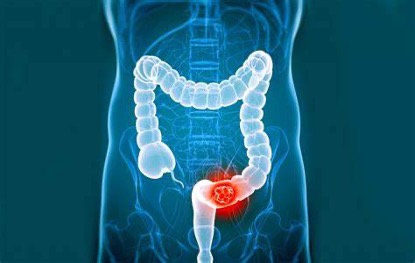First Ever Prototype Applies AI to Colorectal Diagnosis
March 12, 2024
Source: drugdu
 309
309
 The incidence and mortality rates of colorectal cancer (CRC) are on an alarming rise, with predictions showing a continuous increase until at least 2040. Currently, CRC ranks as the third most diagnosed (10.7% of all cancer cases) and the second deadliest cancer type. Despite the effectiveness of imaging and endoscopic techniques in CRC detection, the final cancer diagnosis always relies on a pathologist's assessment of histological samples. Grading dysplasia is still routinely performed by pathologists worldwide when assessing colorectal tissue samples. Computer-aided diagnosis (CAD) systems for colorectal pathology face challenges due to the high data volume and the massive resolution of images, leading to a bottleneck in deep learning (DL) approaches that extract patches from the whole slides.
The incidence and mortality rates of colorectal cancer (CRC) are on an alarming rise, with predictions showing a continuous increase until at least 2040. Currently, CRC ranks as the third most diagnosed (10.7% of all cancer cases) and the second deadliest cancer type. Despite the effectiveness of imaging and endoscopic techniques in CRC detection, the final cancer diagnosis always relies on a pathologist's assessment of histological samples. Grading dysplasia is still routinely performed by pathologists worldwide when assessing colorectal tissue samples. Computer-aided diagnosis (CAD) systems for colorectal pathology face challenges due to the high data volume and the massive resolution of images, leading to a bottleneck in deep learning (DL) approaches that extract patches from the whole slides.
Now, researchers at INESC TEC (Porto, Portugal) and IMP Diagnostics (Porto, Portugal) have created a pioneering prototype that employs artificial intelligence (AI) for colorectal diagnosis. This prototype is a result of a technical innovation involving a new, more efficient training methodology that significantly reduces the number of images needed to train the AI model without compromising its effectiveness. The advancement not only enhances image analysis technology but also contributes to developing more efficient solutions for diagnosing colorectal cancer. The project focused on enhancing a prototype that utilizes AI as a supplementary tool for diagnosing colon and rectal biopsies and creating the most extensive digital image database of colorectal pathologies, now freely available for research and knowledge advancement.
This model was trained using approximately 10,000 images of tissues affected by colorectal pathology, achieving a diagnostic accuracy of 93.44% and a sensitivity of 99.7% in identifying high-risk lesions associated with this cancer type. Over half (5,300) of these images, amounting to nearly five terabytes of data, have been made accessible to the scientific community. The distribution of these digital images is part of IMP Diagnostics and INESC TEC's commitment to science promotion and scientific knowledge sharing, adhering to the FAIR principles. These international guidelines recommend that scientific data should be easily findable, accessible, interoperable, and reusable.
Pedro Neto, a researcher at INESC TEC, stated that “part of the images can be used to train other AI models, while the others will be used specifically for testing/benchmarking between AI tools – towards improving thoroughness and fairness when comparing said tools”.
Source:
https://www.labmedica.com/pathology/articles/294800501/first-ever-prototype-applies-ai-to-colorectal-diagnosis.html
Read more on
- Multiple batches of quadrivalent influenza virus split vaccine have been sub-packaged and submitted for lot release approval; expected to be released to the market soon after approval December 12, 2025
- Ab&B Bio-Tech CO., LTD. JS Lyophilized Human Rabies Vaccine Initiates Phase III Clinical Trials December 12, 2025
- The ‘Sweetest’ HPV Vaccine Market is Gone | Haibin Interview December 12, 2025
- InnoCare Pharma announced that its first independently developed next-generation TRK inhibitor, zoletrazinib, has been approved for marketing in China December 12, 2025
- Is PD-1/VEGF dual antibody + ADC becoming the standard configuration? December 12, 2025
your submission has already been received.
OK
Subscribe
Please enter a valid Email address!
Submit
The most relevant industry news & insight will be sent to you every two weeks.



